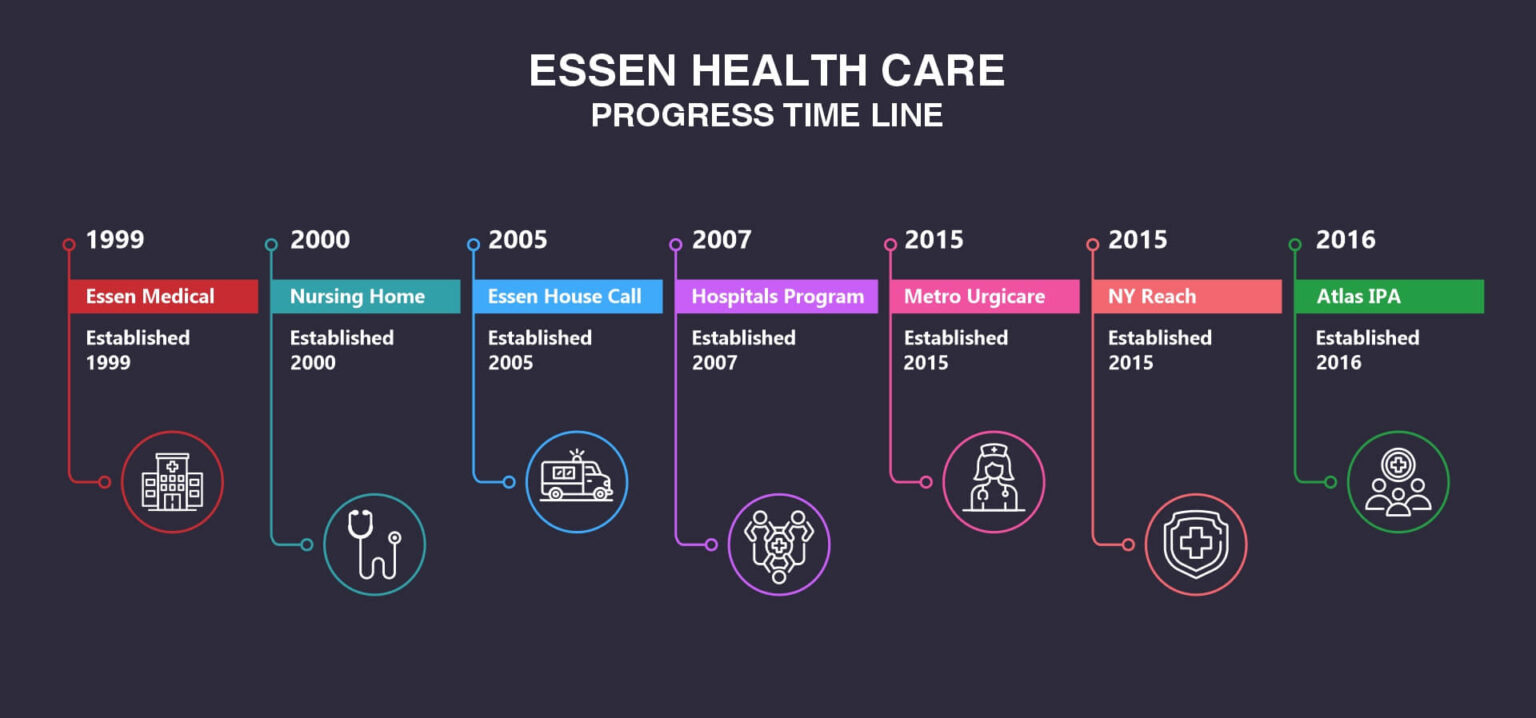Our History

A Visionary and Focused Leader
Essen Health Care takes pride in being a leading health care network across the city. The organization has rather humble origins, starting as a singular office. In 1999, Dr. Sumir Sahgal, an internist, opened Essen Medical Associates P.C. in the South Bronx. Dr. Sahgal made his home in New York while completing his master’s in Health Policy and Science from NYU. Beyond basic primary care, Dr. Sahgal is passionate about improving community health care holistically.
Our Humble Origins
Essen Medical Associates is committed to serving everyone in the community, especially the underserved and underprivileged. Dr. Sahgal’s goal was for Essen to be more than the average primary health care center; he envisioned an organization promoting and caring for the community’s needs at large. Somewhere where physical care and social care could come together.
As a result, neglected populations received the highest quality of care and necessary services, even when it meant forgoing the adequate cost of care. Determined to meet more of New York City’s needs, especially the overlooked Medicaid population, Essen Medical Associates grew into Essen Health Care, adding multiple locations. This growth revealed the need for better accessibility to critical specialist services, and Essen rose to the need.
Then and Now
Dr. Sahgal is still working hard to incorporate the most talented and effective specialists into Essen Health Care. In just twenty years, Essen has expanded from a single primary care office to an umbrella organization offering specialties from women’s health to endocrinology, from psychiatry to a vast array of other specialties. Today, Essen is proud to be able to say to any patient, “We Care for That.”
Schedule Your Appointment Today
Just come on in to any of our many locations around NYC and experience Essen’s philosophy of “Where Care Comes Together.” This simple ethos has evolved Essen into an integrated delivery system where all patients receive the highest quality of specialized care regardless of background. All of Essen’s services, including office, home, hospital, urgent care, and more are patient-centered and meet the needs of unserved populations.
